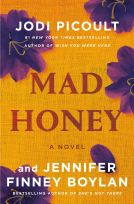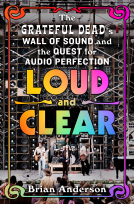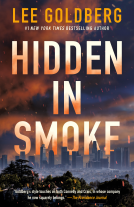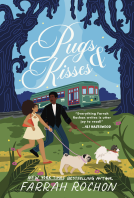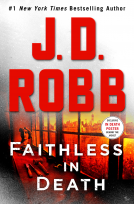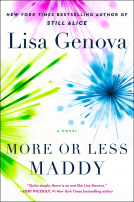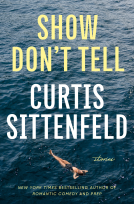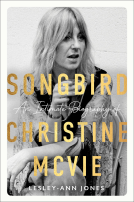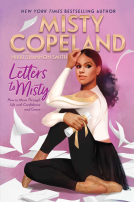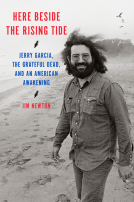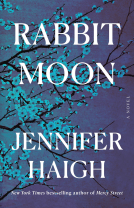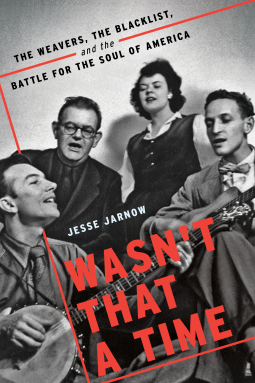
Wasn't That a Time
The Weavers, the Blacklist, and the Battle for the Soul of America
by Jesse Jarnow
This title was previously available on NetGalley and is now archived.
Send NetGalley books directly to your Kindle or Kindle app
1
To read on a Kindle or Kindle app, please add kindle@netgalley.com as an approved email address to receive files in your Amazon account. Click here for step-by-step instructions.
2
Also find your Kindle email address within your Amazon account, and enter it here.
Pub Date Nov 06 2018 | Archive Date Oct 15 2018
Perseus Books, Da Capo Press | Grand Central Publishing
Talking about this book? Use #WasntThatAtime #NetGalley. More hashtag tips!
Description
Following a series of top-ten hits that became instant American standards, the Weavers dissolved at the height of their fame. Wasn't That a Time: The Weavers, the Blacklist, and the Battle for the Soul of America details the remarkable rise of Pete Seeger's unlikely band of folk heroes, from basement hootenannies to the top of the charts, and the harassment campaign that brought them down.
Exploring how a pop group's harmonies might be heard as a threat worthy of decades of investigation by the FBI, Wasn't That a Time turns the black-and-white 1950s into vivid color, using the Weavers to illuminate a dark and complex period of American history. With origins in the radical folk collective the Almanac Singers and the ambitious People's Songs, the singing activists in the Weavers set out to change the world with songs as their weapons, pioneering the use of music as a transformative political organizing tool.
Using previously unseen journals and letters, unreleased recordings, once-secret government documents, and other archival research, Jesse Jarnow uncovers the immense hopes, incredible pressures, and daily struggles of the four distinct and often unharmonious personalities at the heart of the Weavers.
In an era defined by a sharp political divide that feels all too familiar, the Weavers became heroes. With a class -- and race -- conscious global vision that now makes them seem like time travelers from the twenty-first century, the Weavers became a direct influence on a generation of musicians and listeners, teaching the power of eclectic songs and joyous, participatory harmonies.
Available Editions
| EDITION | Other Format |
| ISBN | 9780306902079 |
| PRICE | $27.00 (USD) |
| PAGES | 304 |
Featured Reviews
 Ruth A, Educator
Ruth A, Educator
The most definitive and intensive biography of the Weavers ever published. Deep insight and factual reporting. Their inception, the Blacklist, and their adjustment to the world of music as rock and roll dominated over folk. I cannot recommend this book highly enough to all who interested in folk music, the politics of post- WWII USA, and the lives of passionate individuals dedicated to living their lives in truth and music.
My ONLY criticism is that I would like to have read more about the dynamics of the marriage of Pete and Toshi Seeger, and Ronnie Gilbert's coming out. This book did not focus on the personal lives of the Weavers, individually or collectively, and how that came into play as they navigated their professional lives.
We sang the songs in elementary school music classes.
I Ride an Old Paint
Drill Ye Tarriers, Drill
Big Rock Candy Mountain
The Erie Canal
On Top of Old Smokey
Paddy Works on the Railway
And in scouts and church camp.
Michael, Row the Boat Ashore
Kumbaya
If I Had a Hammer
Little Boxes
We heard the songs on the radio and played them on our record players and hi-fis and cassette players and CD players.
This Land is your Land
Good Night, Irene
Turn! Turn! Turn!
Kisses Sweeter Than Wine
Tom Dooley
Guantanamo
Generations of musicians have recorded the songs.
Where Have All the Flowers Gone
Wimoweh
Sloop John B
I sang St. James Infirmary and Leatherwing Bat as bedtime songs.
On family trips we sang to Dangerous Songs, belting out Garbage and Beans in My Ears.
In a live concert at Penn's Landing in Philadelphia, Pete Seeger taught the crowd The Garden Song.
The music sang and recorded by Pete Seeger definitely imparted certain values. And that is exactly what Pete Seeger, Ronnie Gilbert, Lee Hays, and Fred Hellerman intended. "Cultural equity and global harmony" were the suspect values lurking behind the Weaver's music. It doesn't sound dangerous, just mainstream liberal-progressive stuff. Except those values had led Pete and Ronnie and Lee and Fred to join the Communist party and although they had dropped out, they could not escape the association. And being pro-union, anti-war, globalists extolling the common man in those days was just as bad as wearing a big red "S" for Socialist.
Wasn't That a Time by Jesse Jarnow is the story of the Weavers and the early folk music scene, presenting their battles with the House Un-American Committee and Blacklisting.
It was an age of fear. President Eisenhower had denounced Communists as traitors and a threat. Idealists like Pete Seeger, Ronnie Gilbert, and Lee Hayes were attracted to the Communist party for its high ideals of equality. Events in the USSR disquieted American communists and they drifted away from the Party. But they held onto the values which in time became mainstream progressive liberal values.
Meanwhile, the Weaver brought Folk Music from square 'ethnic' music to mainstream, dominating the airwaves and influencing a generation of younger musicians, even while turning it into counter-culture protest music.
Music--Art--was a weapon, Pete Seeger believed. And his goal was to impact how Americans thought, through music, changing our values.
Although not strictly a biography, we learn about the Weaver's personal lives, their demons and struggles, the arc of their careers. We learn how their music changed as they struggled to walk the fine line between commercial success and staying true to their values. Pete left the group and several talented young men replaced Pete, but in the end, the group broke up.
So many folk singer's names appeared: Huddie Ledbetter, Josh White, Malvina Reynolds, Paul Robeson, Oscar Brand, Harry Belafonte, Joan Baez, Bob Dylan, Dave Von Ronk, Alan Lomax, The Kingston Trio, Peter, Paul and Mary, Alan Arkin, Will Geer, Holly Near--and of course, Woody Guthrie and his son Arlo.
Seeger became an environmentalist activist with the Clearwater Hudson River restoration. We loved singing with the songs on the Clearwater album--"You can't eat the oysters in New Haven Harbor, you can't eat the oysters that live in the bay, 'cause New Haven sewage is dumping down on 'em, if I were an oyster I'd get out today."
As I read the book I realized how deeply the Weavers music changed America. I remembered the last time we saw Seeger live, thousands under a huge tent along the Delaware River, hanging on his every word, being taught new songs and singing along with his standards. We felt a community of spirit in the singing. How many of us knew or remembered that Seeger had appeared before the House and was convicted of perjury?
I received a free ebook from the publisher through NetGalley in exchange for a fair and unbiased review.
 Librarian 22381
Librarian 22381
I have always liked the music of the Weavers and watched a documentary about the group, so I was familiar with them before reading this book. However, Wasn’t That a Time not only talks about the history of the Weavers as a group and as individuals, but also about the time in which they performed—how, in the early 1950’s, they were harassed by the House Un-American Activities Committee, HUAC, and blacklisted. I had no idea that both Burl Ives (the voice of the friendly Snowman in Rudolph the Red Nosed Reindeer) and Ronald Reagan both helped HUAC find people to blacklist as Communists. Extremely well researched without being pedantic or dry, this book is recommended to anyone interested in either music or history.
 Casey W, Reviewer
Casey W, Reviewer
This book covers the history of the Weavers and their endurance to overcome odds and be a success. It addresses the backgrounds of the main players of which Woody Guthrie and Pete Seeger are the best known. In addition, it covers the groups the over time evolved into the Weavers and now their music developed.
I recommend this book for anyone who is a fan of folk music and the role it played during the 1940's and 1950's.
I received a free Kindle copy of Wasn't That A Time by by Jesse Jarnow courtesy of Net Galley and Perseus Books/DeCapo Press, the publisher. It was with the understanding that I would post a review on Net Galley, Goodreads, Amazon and my fiction book review blog. I also posted it to my Facebook, Twitter, LinkedIn and Google Plus pages.
I requested this book as the description interested me and I am an avid reader of american history. This is the first book by the author that I have read.
 Librarian 490739
Librarian 490739
I grew up on Pete Seeger and the Weavers as a child and had the opportunity to see Seeger perform once before he passed away. Definitely one of my favorite composer/singers.
The book was very interesting, though I think it might have gone into a little too much detail. However, it is a very well researched book and definitely recommend it to anyone who is interested in the founding of the modern American folk music field.
I received this book for free in exchange for a honest review.
 Melanie W, Librarian
Melanie W, Librarian
The Weavers are all gone now - Pete Seeger, Lee Hayes, Fred Hellerman, Ronnie Gilbert, and all of the other musicians, writers, arrangers, promoters. Gone also are the tormentors from HUAC and other groups whose interference, accusations, and fake news about these and other artists made their creative and everyday lives a living hell.
Those of us who were true fans of The Weavers in all of their incarnations will learn the details behind their music catalog and other public pursuits, from Ronnie Gilbert's tours with Holly Near to Pete Seeger's Clearwater enterprises, all accomplished despite the persistent and pernicious censorship, and the internecine disagreements here uncovered. Wasn't that a time, indeed, and how relevant are those struggles today?
The details in this book will be fascinating and gripping to many, and both instructive and inspiring to all. Do yourself a favor: listen to "The Weavers at Carnegie Hall" as you read and go about your day.
Thanks to NetGalley for allowing me to review this book.
Readers who liked this book also liked:
Jodi Picoult; Jennifer Finney Boylan
General Fiction (Adult), Literary Fiction, Women's Fiction
